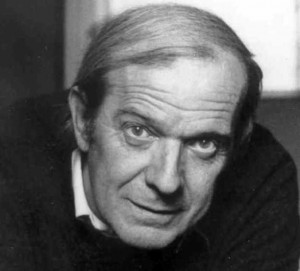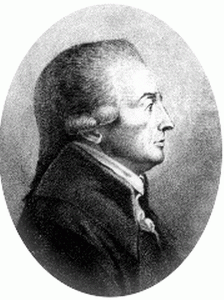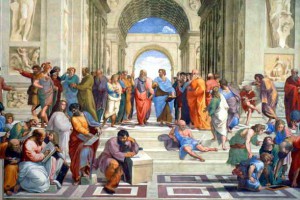 Actuality of the subject. In the conditions of increased anthropogenic stress, discomfort in cities due to air pollution resulting from motor vehicles emissions and industrial plants, landscaping and different gardening populated areas have become of a particular importance. Landscaping and gardening are the most important fields of activity of the municipal economy, especially in our time. Continue reading
Actuality of the subject. In the conditions of increased anthropogenic stress, discomfort in cities due to air pollution resulting from motor vehicles emissions and industrial plants, landscaping and different gardening populated areas have become of a particular importance. Landscaping and gardening are the most important fields of activity of the municipal economy, especially in our time. Continue reading
Author Archives: Mary
Development of competition in local markets in Russia

Local government in the Russian Federation occupies an important place in thesystem of regulation of the economy. The authorities of the local self-government performsadministrative function in relation to the business, create conditions for development of competition and at the same time can act as a full business entity [8, p. 137].
Continue readingModernization of higher education structure in Ukraine in the context of European standards system requirements

Abstract. The article gives an overview of some aspects of modernization of Ukrainian structure of higher education. It is stated, that modernization is changing in the context of the requirements of the European system standards. It facilitates the development of national cultural values, democracy and humanism as the major factors of civil society functioning.
Continue readingKnowledge management in government

Knowledge management is usually associated with the IT field, though it easily encompasses IT and nearly every other branch of a department or agency. Knowledge management is simply a practical, process-orientated approach to how agencies and departments capture institutional knowledge and learn from it. Knowledge management’s primary goal is to measurably improve individual and organizational performance.
Continue readingFreedom acquisition through subjection of existing nessesity. The principle of apathy
Freedom acquisition through subjection of existing nessesity. The principle of apathy.
Paroxysm is strong attack, assalt (illness, feelings). The passion is a strong feeling expression. It starts and run rapidly. It is an explosive process. It might be envy, anger, loathing or strong apathy attack. All of these reduce focusing ability in reality and a luck of emotions.
Continue readingParadoxes of the Stoics moral life
Stoicism originated in ancient Greece in the 3rd century. B.C. The founder of the philosophical school was Zeno of Citium. Proponents of this theory gathered in the gallery with columns in Athens, which was called Stoya (Greek. Stoya-portico). Stoicism is divided into three periods: Ancient Stoya (3-2 century BC. E.) The average Stoya (2-1 century BC.) Late Stoya (1-2 century AD.)
Continue readingCognitive Voluntarism
This paper critically examines and defends an epistemological theory sketched by the late American philosopher James F. Ross, known as “Cognitive Voluntarism”. Continue reading
Deleuze’s Aesthetical Answer to Heraclitus
 How can movement be painted?
How can movement be painted?
In order to answer my question I simply refer Deleuze’s understanding of movement as it appears in his Francis Bacon, Logic of Sensation, to Heraclitus’ flux. In common the two thinkers have the idea that ‘on the surface’ appearances simply undergo a process of destruction.
Heraclitus calls the successive metamorphosis of any figure the flux. Continue reading
Maimon and the Logic of Genesis
 After only a glance at Salomon Maimon’s manuscript, Kant deliberated that “Herr Maimon” supersedes all his opponents. He departs from Kant by questioning the validity of synthetic a priori judgments and the conditionality of the possibility of experience.
After only a glance at Salomon Maimon’s manuscript, Kant deliberated that “Herr Maimon” supersedes all his opponents. He departs from Kant by questioning the validity of synthetic a priori judgments and the conditionality of the possibility of experience.
Maimon’s project is a confluence of a Leibnizian dogmatist strain that grounds transcendental philosophy in a principle of determinability, and a tinge of empirical skepticism that views synthetic propositions to be merely subjective. Continue reading
The Beautiful, the Sublime, and the Moral Good in Kant’s Critique of Judgment
 Based on Kant’s Critique of Judgment, this thesis explores the transition from the realm of nature to the realm of freedom by means of aesthetic reflective judgments, namely judgments of the beautiful and judgments of the sublime.
Based on Kant’s Critique of Judgment, this thesis explores the transition from the realm of nature to the realm of freedom by means of aesthetic reflective judgments, namely judgments of the beautiful and judgments of the sublime.
First, I will examine judgments of the beautiful, which give the substrate of nature determinability with regard to empirical particular laws, i.e., conceive these laws as purposive and receptive of determinate principles.
Second, I will discuss judgments of the sublime, which provide the same basis with determination by practical moral principles. Continue reading


